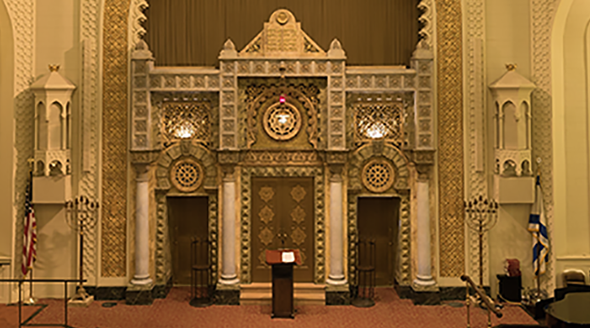
Reprinted from
The Jewish Week | jewishweek.timesofisrael.com
Jerusalem — Sitting in the dedication ceremonies for the American embassy here on Monday, I was reminded of the Talmudic account of ancient Israel’s liberation from Egypt bondage. When the Israelites had crossed the sea to dry shore as the Egyptian army drowned in the sea behind, the angelic retinue began to sing God’s praise. God rebuked the angels saying, “My children [the Egyptians] are drowning, and you would dare utter a song?”
Both sides are in need of a moral inventory.
As the author Yossi Klein Halevi recently reflected, we would do well to remember that the same Bible that commands us in Exodus to “Remember that you were once strangers in a strange land,” also contains the injunction to “Remember what [your enemies] the Amalekites did to you as you came out of Egypt.” Our obligations to attend to the stranger in our midst and be attentive to our national well-being and self-interest are not at odds with each other; they emerge from the same tradition. It is not an either/or proposition.
What a lost opportunity for Israel that the Jerusalem dedication did not receive the blessing of a representative cross section of American rabbinic leadership. What a lost opportunity for American Jewry that its leadership did not extend a more robust embrace of the Jerusalem dedication. Did it reflect invitations not issued or invitations declined? I have no idea, but it is a sad state of affairs that the very thing that should bring the Jewish world together – Israel – has become ground zero for our most divisive partisan rifts.
Religious leadership does itself a great disservice in aligning itself too closely to any one political party. Beginning with the biblical courts of King Saul and King David, the power of the prophetic voice has been derived from its willingness to speak truth to power. When the religion of liberal Jews becomes interchangeable with progressive politics, or the Orthodox community’s support of the political right is never tested, our tradition ceases to serve as a guide and check to the politics of our day. From Abraham onward, the litmus test for moral leadership has never been popularity or political expediency – just the opposite. It is in our willingness to defy conventional wisdom that the voice of our tradition is most resonant.
One can be vigilant against the existential threat of a nuclear Iran and work doggedly towards a two-state solution. One can celebrate Jerusalem as the capital of the Jewish state, defend Israel’s right to protect its borders, and mourn the loss of Palestinian life. And yes, one can support a particular policy of Trump, Obama, or another leader without fearing that one is giving blanket approval to every policy utterance of this or that administration. In refusing to be typecast, the Jewish community both bolsters our moral standing and serves to keep those who would seek our support on their toes. Be it Israel or any issue, our positions must be based on principle, not party, and we must always be willing to reach across the political or denominational divide. We are a small enough people as it is; the Jewish community must always retain its ability to maintain a respectful dialogue within – especially on those issues upon which disagreement exists.
For better and for worse, these dramatic days have revealed the divisions within the Jewish people. In its ideal, Jerusalem represents the possibility of a diverse people united under one banner. May we seek out the peace of Jerusalem, heal its fissures, champion its moral standing, and work together to strengthen our people’s physical and spiritual capital.
